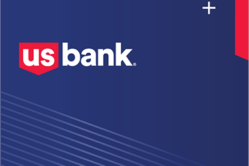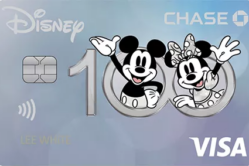The Military Wallet has partnered with CardRatings for our coverage of credit card products. The Military Wallet and CardRatings may receive a commission from card issuers.
It’s hard to deny the fact that credit cards are a fact of life. Even if you plan to pay in cash, you typically need a credit card to book airfare, put a deposit down on a hotel room, or reserve a rental car. If you have poor credit or a short credit history, this can pose a problem. After all, bad credit or a short credit history may prevent you from qualifying for a credit card altogether.
Fortunately, secured credit cards offer an alternative for people in this unfortunate situation. By applying for a secured credit card and putting down a deposit, you can usually secure a small credit line. Used responsibly, that credit line can help you build a positive credit history – and improve your credit score – over time.
Secured vs. Unsecured
In order to understand how a secured credit card could work in your situation, it’s important to learn the difference between secured and unsecured credit cards:
Unsecured credit cards – Unsecured cards offer consumers a line of credit based on their creditworthiness and a promise of repayment. Since unsecured cards offer credit, they do not require a deposit. Unsecured cards are typically only available to consumers with good or excellent credit, but there are some fair credit credit cards available. So if have some acceptable credit history that may be an option.
Secured credit cards – Secured credit cards require a deposit as collateral. With a secured credit card, your deposit is often equal to your new line of credit. This collateral is used to pay off your card in the event you fail to make the payment on time. Secured credit cards are most useful for those with poor credit or a short credit history, or anyone who cannot qualify for an unsecured card.
Featured Secured Credit Cards
The following cards are some of the best secured credit cards on the market. Offering easy access and low fees.
How Secured Credit Cards Work
Since secured credit cards usually offer a credit limit that is equal to the initial deposit, they don’t actually extend consumers credit. Instead, they provide consumers with an opportunity to build a credit history that can improve their credit over time. With most secured cards, credit limits start out in the $300 – $500 range. However, they are often increased over time.
Although secured credit cards may sound like a bad deal in theory, they are actually rather useful in practice. Why? Because many people with poor credit or limited histories get stuck in a “chicken or the egg conundrum.”
Here’s how that works: When you have poor credit, credit card companies will not qualify you for an unsecured credit card. However, not having a credit card can make it impossible to improve your credit.
Secured credit cards, while not always ideal, solve this problem. So much so that they are frequently referred to as no credit or bad credit credit cards. Even though they require a deposit and may charge more fees than traditional cards, they do provide consumers with an avenue to improve their situation.
Here are a few additional details you should know about secured credit cards:
Secured cards usually have the highest fees – In addition to requiring an initial deposit, secured cards generally charge higher fees than regular unsecured credit cards. Those “extra” fees usually include an annual fee and may include monthly account maintenance fees. In addition, secured credit cards generally charge higher interest rates than unsecured credit cards.
You can usually upgrade to an unsecured card once your credit score improves – If you’re stressed out at the prospect of getting a secured credit card, don’t despair. Once your credit score improves, you can usually upgrade your secured card to an unsecured version of the same card or cancel your account and apply for a different card with better terms. In other words, your experience with secured credit cards may only be temporary.
Once you close or upgrade your account, you get your deposit back – Although it can take a few billing cycles, you will definitely get your initial deposit back after you close your secured account.
Pros and Cons of Secured Cards:
Secured Credit Cards offer several major advantages to people looking to create or establish credit history, or simply improve their credit score.
- Easy Approval Process. Because the issuing bank holds a deposit as collateral, they will accept almost all applicants. Many people who cannot get approval for a traditional credit card can get approved for a secured credit card.
- Establish or re-establish credit. Secured credit cards can help you establish a credit history if you have not yet taken out a line of credit, or re-establish your credit if you have unfavorable marks on your credit report.
- Increase your credit score. Most secured credit cards report to the credit bureaus, so your credit score should improve as long as you make on-time payments.
- Security deposit in case of default. Your security deposit will be used in the event you don’t make payments, so you don’t risk taking on more debt.
- Interest on deposits. Some secured credit cards offer interest on the security deposit card holders leave with them. That means you may be able to earn a few bucks if you make all your payments on time and do not carry a balance.
- Conversion to traditional credit card. Some secured credit cards automatically convert to traditional credit cards within a certain time frame (sometimes 18-24 months), provided you make all payments on time and don’t go over your credit limit.
There are also a few disadvantages:
- Security deposit required. Secured credit card holders have to “pay to play.” Secured credit cards require a deposit in the amount of the credit limit, and many people who don’t have credit can’t afford to pay a deposit to build their credit… another Catch-22.
- High fees. Most secured credit cards come with fees, sometimes including application fees, processing fees, annual fees, and possibly monthly fees.
- Higher interest rates. Secured credit cards often come with higher interest rates than traditional credit cards. You can avoid the high interest rates if you pay your bill in full each month.
How to Select a Secured Credit Card
Now that you know how a secured credit card could benefit you, it’s time to decide which secured card to pursue. Although all secured cards require a deposit and offer a low initial credit limit, other factors – such as fees, perks, and interest rates – can vary widely. Here are some things you should consider as you sort through the secured cards currently on the market:
Choose a card that reports to all three credit reporting agencies – If your goal is rebuilding or repairing your credit over time, you need to select a secured card that will report to all three credit reporting agencies – Equifax, Experian, and TransUnion. If you’re unsure whether a card issuer reports, you can always call them and ask.
Analyze fees and read the fine print – Although the Consumer Financial Protection Bureau has made great strides when it comes to protecting consumers from predatory lending products and practices, there are still some secured cards that offer very unattractive terms. Always read the fine print that accompanies any secured card product and make sure you understand any applicable fees.
Compare the best secured cards side-by-side – Once you’ve weeded out the worst secured card offerings, it’s important to compare your best options to see how they stack up. Even among secured cards that offer decent terms, fees may vary widely. Always compare a few of the best options to make sure you’re getting the best deal.
Don’t forget the perks –Although secured cards aren’t known for having generous card rewards programs, a few do offer rewards on certain category purchases. Meanwhile, other secured cards offer features such as free credit monitoring or even a free credit scores. They are not going to offer anything close to the cash rewards credit cards you see advertised on television but, as you research secured cards, make sure to consider any “extras” that add value.
Who Should Apply for a Secured Credit Card?
A secured credit card can help you establish credit history or improve your credit due to an unfavorable credit report. Despite the fees and high interest rates, a secured credit card may be the best way for you to increase your credit score, particularly when you are not able to obtain credit through any other means. You will probably do better to avoid secured credit cards if you can qualify for a traditional credit card or another line of credit.
Improving Your Credit Score
The process of selecting a secured card may seem overwhelming, but it’s important to stay focused and pick the best card for your situation. For the most part, that means selecting a secured card that reports to all three credit reporting agencies, but has fairly low fees and as many added benefits as possible. And don’t forget – your experience with secured cards may only be temporary. If you begin using your card responsibly right away, your credit score will likely improve.
Sometimes that’s all it takes to be able to qualify for an unsecured card with lower fees and better terms. And if you’re using a secured card, improving your credit should be your only goal.
*Note: Secured credit cards and prepaid cards are not the same. Prepaid credit cards are more similar to gift cards, but bear the name of a traditional credit card, such as Visa, MasterCard or American Express. They do not affect your credit score.
The Military Wallet has partnered with CardRatings for our coverage of credit card products. The Military Wallet and CardRatings may receive a commission from card issuers.



About the comments on this site:
These responses are not provided or commissioned by the bank advertiser. Responses have not been reviewed, approved or otherwise endorsed by the bank advertiser. It is not the bank advertiser’s responsibility to ensure all posts and/or questions are answered.